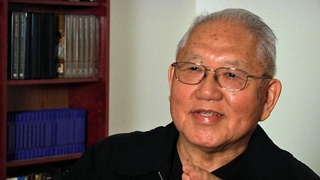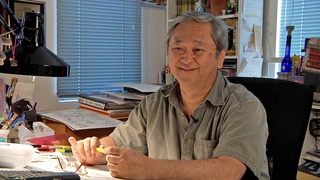Interviews
Gidra Collaborations
The relationships that we built with other newspapers, I mean, we had exchange with a number of papers, including the Black Panther paper, the Puerto Rican Young Lords Paper, there was a group of white working class youth, revolutionary youth in Chicago who put out a paper called Rising Up Angry which was a very good paper, and Native Americans and of course with a lot of the other Asian American newspapers that came to be over those five years we had exchanges.
And someone was asking me the other day about, you know like a, some graphics that appear in Gidra. Some of them we got from publications from China, Vietnam, other Southeast Asian countries, and we had exchanges with them too. And so I think, you know, movement newspapers supported each other.
Date: September 29, 2011
Location: California, US
Interviewer: Kris Kuromitsu, John Esaki
Contributed by: Watase Media Arts Center, Japanese American National Museum
Explore More Videos








Postwar school-life
(b. 1930) Half Japanese and grew up in both Japan and the United States.

On Challenging Institutions
(1938-2020) Japanese American attorney and civil rights activist

Pop and Balls
(1938-2020) Japanese American attorney and civil rights activist

Re-examining Identity
(1941-2018) Japanese Canadian photojournalist and activist



Conflicted about immigrating to America (Japanese)
(b. 1925) War bride

Defining "Nikkei"
(1941-2018) Japanese Canadian photojournalist and activist
